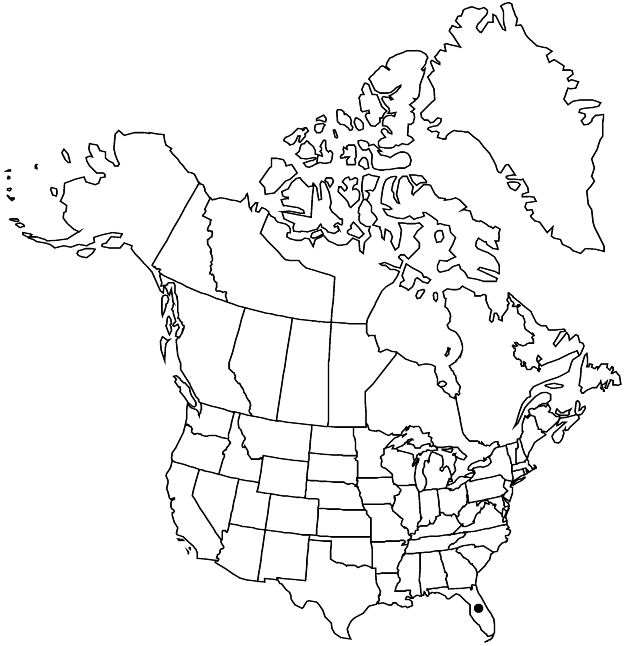Phyllanthus angustifolius
Fl. Ind. Occid. 2: 1111. 1800.
Shrubs, monoecious, 10–30 dm; branching phyllanthoid. Stems: main stems terete, not winged, glabrous; ultimate branchlets deciduous, flat cladodes to 1 cm wide, not winged, glabrous. Leaves on main stems deciduous, spiral, scalelike; stipules not auriculate, dark brown. Leaves on ultimate branchlets caducous, distichous, scalelike; stipules absent. Inflorescences cymules, bisexual or staminate, with 1–2(–3) pistillate and/or 2–5 staminate flowers. Pedicels: staminate (1–)2–6 mm, pistillate spreading in fruit, (1–)2–4(–7) mm. Staminate flowers: sepals 6, purplish pink to cream, flat, (0.8–)1–1.5(–2.3) mm; nectary extrastaminal, 6 distinct glands; stamens 3(–5), filaments connate 1/2–3/4 length. Pistillate flowers: sepals 6, purplish pink to cream, flat, 1–1.5(–2.2) mm, 1-veined; nectary annular, undulate or crenulate. Capsules 3–4 mm diam., finely wrinkled. Seeds uniformly brown, 1.4–2.6 mm, irregularly verrucose.
Phenology: Flowering and fruiting year-round.
Habitat: Disturbed hammocks.
Elevation: 0–10 m.
Distribution

Fla., West Indies (Cayman Islands, Jamaica, Swan Islands).
Discussion
Phyllanthus angustifolius is cultivated as an ornamental throughout the West Indies and in Florida. It has become naturalized in southern Florida (Miami-Dade and Monroe counties). The flattened ultimate branchlets are strikingly leaflike; their correct homology is demonstrated by the cymules of flowers borne along the margins. J. K. Small (1933) referred the Florida plants to Xylophylla angustifolia var. linearis Swartz, but that name is a synonym of P. arbuscula (Swartz) J. F. Gmelin, a West Indian species that also is cultivated in Florida but does not appear to have become naturalized there.
Selected References
None.